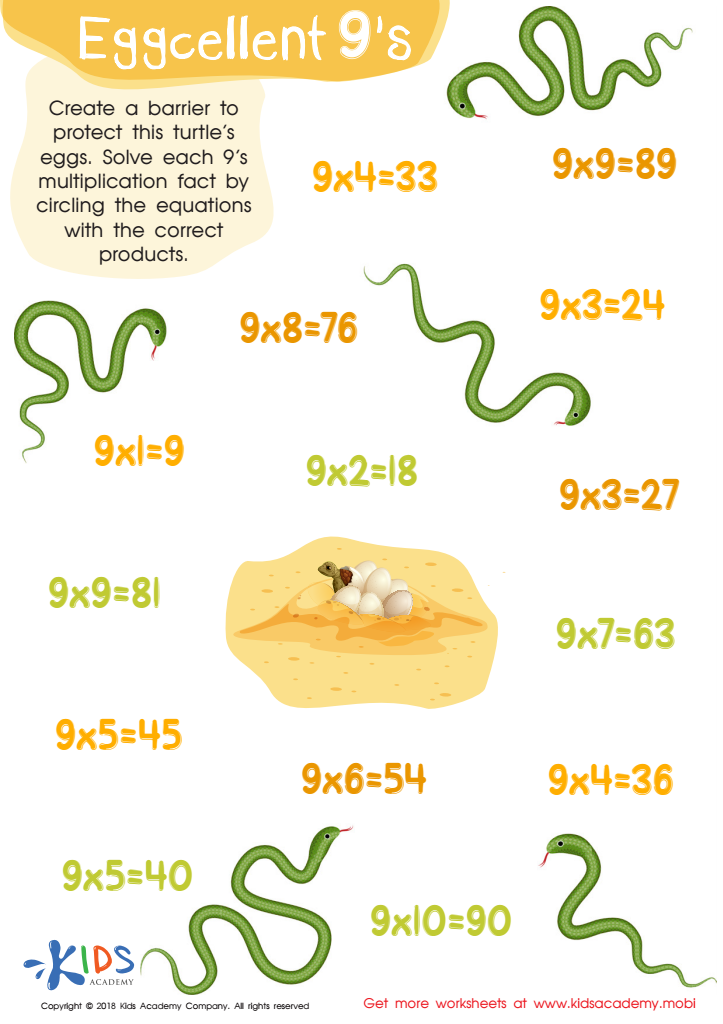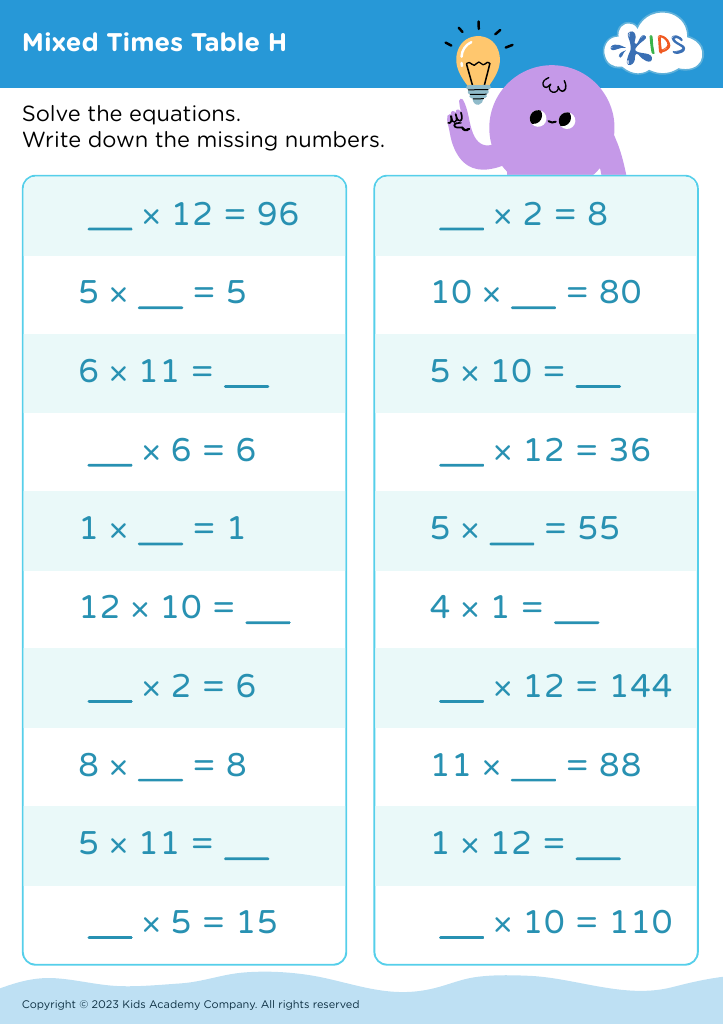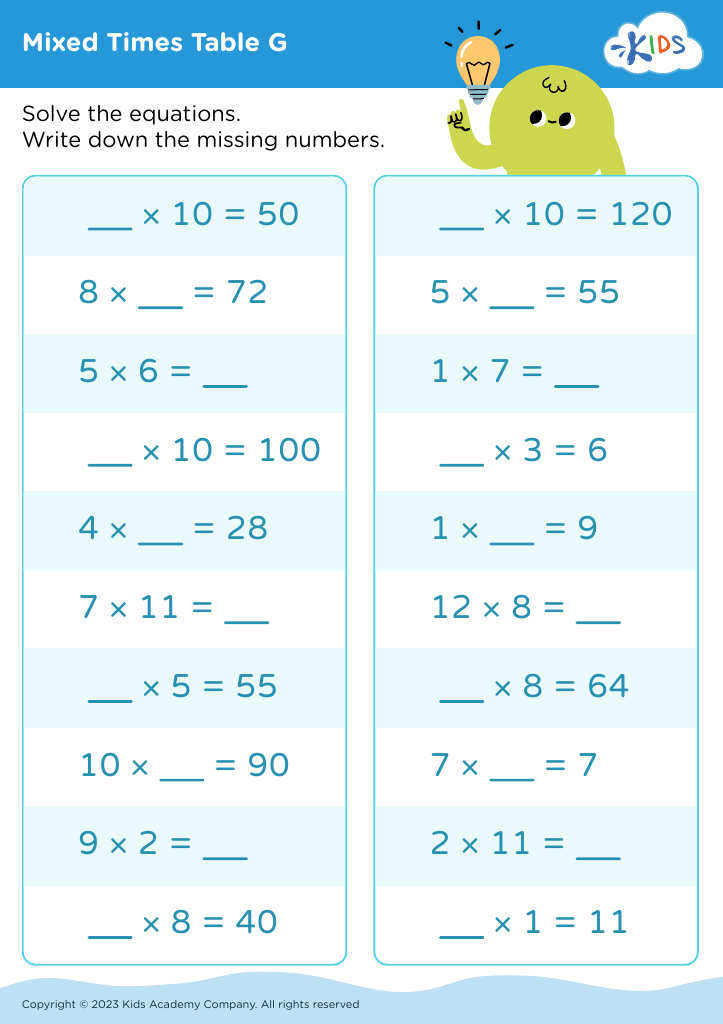Memorization skills Extra Challenge Multiplication Worksheets for Ages 7-8
3 filtered results
-
From - To
Enhance your child's memorization skills with our engaging Extra Challenge Multiplication Worksheets designed specifically for ages 7-8. These printable worksheets provide a fun and interactive way for young learners to strengthen their multiplication facts. With a variety of challenging exercises, your child will improve their speed and accuracy, reinforcing essential math skills. Each worksheet focuses on different multiplication concepts, ensuring a well-rounded understanding. Ideal for extra practice at home or in the classroom, these resources will help young mathematicians build confidence and proficiency in multiplication. Set your child on a path to math success with our exciting and effective learning tools!


Eggcellent 9’s Worksheet
Memorization skills, particularly in multiplication for children aged 7-8, are crucial for their mathematical development and academic success. At this age, students transition from concrete learning to more abstract thinking, making memorizing multiplication facts an essential milestone. Strong multiplication skills provide a foundation for more complex mathematics, such as division, fractions, and later, algebra.
When students memorize multiplication tables, they enhance their cognitive abilities, boosting their confidence and reducing anxiety during math assessments. Furthermore, mastering these basic facts allows children to tackle more challenging problems with ease, fostering a positive attitude toward math as they continue their education.
Parents and teachers play a vital role in this learning process by implementing engaging strategies, like songs, games, and challenges, to make memorization enjoyable, rather than laborious. This encourages a deeper interest in mathematics, shaping a lifelong appreciation for the subject.
Ultimately, developing strong memorization skills in multiplication not only contributes to better performance in school but also equips students with critical thinking and problem-solving abilities that they’ll use later in life. Understanding this importance highlights the need for supportive and engaging learning environments at home and in the classroom.
 Assign to My Students
Assign to My Students






















